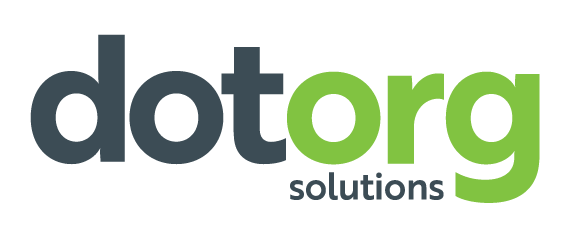Five things every nonprofit board should review regularly
Being asked to be a member of a nonprofit board is an honor. It means that the nonprofit has faith that you will help guide, support and protect the interests of the organization and adhere to its mission.
And with that honor comes great responsibility. As a board member, you often must serve in a variety of capacities. Hopefully, if you have been asked to serve on a board, you learned about your responsibilities and expectations of board members during your new board member training. And, if there is no new board member training at your nonprofit, we recommend creating an onboarding program.
(Read more about board member responsibilities in our blog by Sara Lundenberger.)
However, it is not just important for you to be able to execute the tasks the nonprofit gives you as a board member; it is also essential that you understand the business of running a nonprofit. This part of board membership is often overlooked by both the nonprofit leadership and the board. Yes, running a nonprofit, despite its tax status, is actually like running a business. There are policies and procedures, operational activities, products and services, financial statements and governance documents, and HR.
Unfortunately, many nonprofits don’t have the resources to employ dedicated personnel with expertise in each of these particular areas. So, as a member of a board, it is important that you have the knowledge or access to the knowledge in these key areas. And you and your board should also regularly review key governing documents, staff and insurance to protect you in times of organizational change or challenges.
I recently attended an educational session in our area with speakers from SeibertKeck Insurance Partners, Brennan, Manna & Diamond and the Ohio Attorney General’s Office. They focused on a few key areas of board governance, several of which I plan to bring to boards I serve on.
I also came away with a list of five things that I think all boards should review on a regular basis to keep the organization running smoothly. Most of these items should be reviewed annually, either by a subcommittee of the board or the executive committee. If annual is too much of a task, they should at the very least be reviewed bi-annually.
1. Insurance policies
Your organization likely renews its policies every year. But how often do you actually REVIEW those policies to ensure that you have ample insurance coverage? An agent with experience in insuring nonprofit organizations will be able to help you understand the type of coverage you need so you are protected in a variety of situations. Plus, an annual review may make you aware of changes in requirements or additional coverage that wasn’t available before.
Common types of insurance for nonprofits include:
⋅ General liability
⋅ Auto
⋅ Directors and officers
⋅ Cybersecurity
⋅ Health, life, disability
⋅ Event-specific
(Note: Not all of these types of insurance are needed by every nonprofit and rules differ in each state. There are also other insurance that specific types of organization may need. Please consult your insurance agent for a comprehensive review of your coverage.)
2. Bylaws
I’ll admit that reading or reviewing bylaws isn’t the most exciting way to spend your time. But, when is the last time your board dusted off its bylaws? Like most organizations, you may not consult the bylaws unless something is wrong or in question. If the organization is running smoothly, years could go by before anyone pulls the bylaws off the shelf.
Make it a best practice to review them regularly. It is best to have a qualified attorney involved in this process. You may not need their help every year, but you will want to consult them when making substantive changes or additions. You may also want to plan to review your bylaws when there are changes in organizational or board leadership.
3. Lease agreements and long-term contracts
Do you wince every time you get the bill from the copier company? When is the last time you looked at your lease for your office space? Are there other items your organization leases or has contracts for regarding its operations, such as vehicles, equipment or services?
We often don’t pay much attention to these documents much once they are signed. Unfortunately, that can cause undue surprises at the most inconvenient times.
Have your finance committee schedule an annual review of leases and long-term contracts. Know when they terminate, if there are any clauses that may cause service disruption for those you serve, or if there are extra fees for overages that could cause extra financial stress.
4. Internal policies and procedures
It isn’t the board’s role to get involved in the minutia of a nonprofit, but sometimes there are internal policies and procedures that benefit from board oversight and review. Make a list of key policies that exist and may need to be reviewed on a regular basis. These may include:
1. Investment policy
2. Policies for handling donations, fees for service or cash transactions
3. Personnel policies – employee handbook
These may not need ongoing updates, but still need to be scheduled for regular review.
5. The executive director/president
As a board, it is your responsibility to provide a performance review of the top executive, as well as assist in setting measurable goals for this individual. For some nonprofits, this task is done informally or is an ongoing process. While ongoing feedback is good, it is important to have a formal review in writing. It helps set goals for the leader and helps the board manage expectations.
This may seem like an overwhelming amount of things to accomplish annually. But, assigning these tasks to certain committees and the executive director will help. Also, once you get on a regular schedule and identify key things you are looking for during your reviews, the process should become smoother each year.
Being a board member should be a rewarding experience. Giving of your time, talent and treasure helps nonprofits make our communities better places to live. If you carry out your responsibilities, and stay on track of materials and tasks, you will make even more of a difference to your board, your nonprofit and the communities around you.
Like what you read? Subscribe to our weekly blog and it will be delivered directly to your inbox!

Amy Wong, president, Dot Org Solutions
Amy believes the world is a better place because of the special work that nonprofits do for our communities for making them better places to live, work and raise families. And as president of Dot Org Solutions, she is a champion for small businesses for the role they play in creating jobs, delivering important products and services, and keeping the economy strong.

